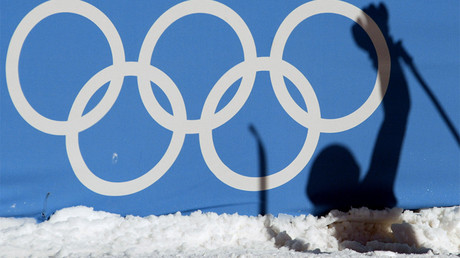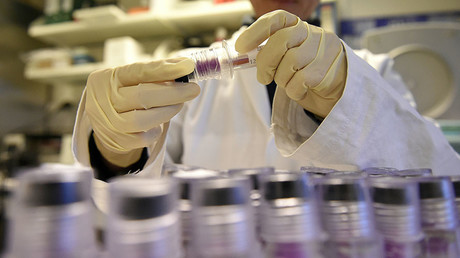WADA foundation board declares Russian anti-doping agency 'non-compliant' with international code
The World Anti-Doping Agency (WADA) is to rule against reinstating the Russian anti-doping agency (RUSADA), after it was declared “non-compliant” with the WADA code following a meeting of its foundation board on Thursday.
"WADA Foundation Board approves the recommendation by the Independent Compliance Review Committee that RUSADA remain non-compliant," WADA wrote on Twitter.
WADA Foundation Board approves the recommendation by the Independent Compliance Review Committee that RUSADA remain non-compliant.
— WADA (@wada_ama) November 16, 2017
In addition to Russia, the board also declared Guinea, Kuwait and Mauritius non-compliant.
Earlier, Russian Deputy Prime Minister Vitaly Mutko stated that no matter what WADA decided on RUSADA’s status, it will not affect Russia’s participation in the Olympics, as the latter is “a prerogative of the International Olympic Committee (IOC), not WADA.”
A decision on Russia may be made at the next IOC Executive Board meeting in Lausanne scheduled for December 5. At the meeting, the members are expected to review a report into the alleged state-sanctioned doping system in Russia by a commission led by Swiss politician Samuel Schmid.
The Russian Anti-Doping Agency (RUSADA) was declared non-compliant with the WADA code following a damning report by WADA’s Independent Commission in November 2015, that alleged a widespread and systematic use of performance enhancing drugs by Russian athletes. As a result, the Russian track and field team was banned from the 2016 Rio Olympics and RUSADA was stripped of its international accreditation. WADA later laid out a roadmap for RUSADA to be reinstated, with one of the key demands being that Russia must publicly accept the findings of the WADA-commissioned investigation by Richard McLaren of July 2016, implying an existence of a state-sponsored doping system in Russia.
The second part of the report, released in December 2016, claimed that over 1,000 Russian athletes including summer, winter and Paralympic competitors were involved in the state-sponsored doping scheme. Without disclosing any names, McLaren then claimed that samples of 12 Russian medalists from 2014 Sochi Olympics were tampered with.
In the wake of the report, an International Olympic Committee Disciplinary Commission chaired by Denis Oswald was established to re-analyze the samples for traces of potential foul play. Based on the commission’s findings early November, the IOC annulled the results of six Russian skiers in Sochi and barred them from competing in any future Winter Olympic games. IOC pointed to the anti-doping rules violations allegedly committed by the athletes, without specifying their kind.
Among those banned is the winner of men’s 50km marathon Alexander Legkov, Maxim Vylegzhanin, a silver medalist in men’s team sprint and marathon, as well as Evgeniy Belov, Evgenia Shapovalova, Julia Ivanova and Alexey Petukhov.
Vylegzhanin and Legkov have announced they are appealing the decision to the Court of Arbitration for Sport (CAS), with the president of Russia’s Cross-Country Skiing Federation, Elena Valbe, telling RT that the organization will “fight until the last drop of blood” to prove the innocence of the skiers.
READ MORE: IOC annuls results of 4 Russian skiers, strips 2 more medals
In June, RUSADA, was granted permission to run and plan tests in Russia for the first time since its suspension, although under oversight of international WADA experts and the officers of the UK Anti-Doping Agency (UKAD).
WADA Director General Olivier Niggli, who visited RUSADA Moscow headquarters in July, commended the changes that have been made by the organization to meet the WADA criteria, saying that it “goes in the right direction.”
In August, Mutko said he did not see any problems for Russia in implementing the WADA criteria. He admitted that while there were some failures within the Russian anti-doping system, no state-run doping program designed to arrange and cover up the usage of banned substances ever existed in Russia.



